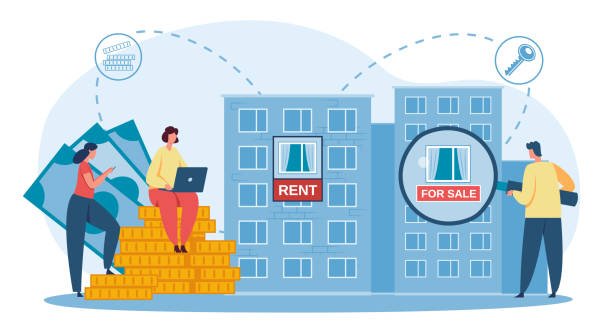
Investing in property is one of the most significant financial decisions anyone can make. In fast-growing markets, the debate between renting and buying resale property continues to challenge both first-time investors and seasoned buyers. Each choice has its unique advantages and drawbacks, making it essential to weigh them carefully before making a move. This article dives deep into the world of rental and resale properties to help you make an informed decision.
Before diving into the pros and cons, it’s important to understand what rental and resale properties mean.
Rental Property refers to real estate purchased with the intention of leasing it to tenants. The owner earns income through rent while the property potentially appreciates in value over time.
Resale Property, on the other hand, is a property that has been previously owned and is being sold again. Buyers often consider resale properties for immediate availability, established communities, and sometimes lower costs than new developments.
One of the most critical factors in deciding between rental and resale property is the cost.
Rental Property Costs:
Resale Property Costs:
While rentals can offer a steady income, resale properties often provide flexibility in terms of investment scale and customization.

The return on investment differs significantly between rental and resale properties.
Rental Income:
Resale Income:
Choosing between rental and resale depends on whether you prioritize immediate cash flow or long-term wealth accumulation.
Property markets fluctuate, and understanding these trends can make a big difference in your decision.
Rental Market Trends:
Resale Market Trends:
Keeping an eye on market cycles helps investors choose the best time to enter either segment.
Another factor influencing the decision is the degree of control and flexibility each option offers.
Rental Property Flexibility:
Resale Property Flexibility:
If you prefer a hands-on investment with long-term management, rentals may suit you. If you want a more passive ownership experience, resale property could be more appealing.
Every investment carries risks, and understanding them is vital.
Rental Property Risks:
Resale Property Risks:
Investors should conduct thorough due diligence, including property inspections and market analysis, to minimize risk in both cases.
Taxes can influence profitability significantly.
Rental Property Tax Advantages:
Resale Property Tax Considerations:
Consulting a financial advisor can help optimize tax strategies for either investment.
Your personal goals can heavily impact whether rental or resale is smarter.
Choosing Rental Property:
Choosing Resale Property:
Balancing lifestyle needs with financial goals ensures your investment aligns with your overall strategy.

Beyond numbers, emotional satisfaction can play a role in property decisions.
Rental Property:
Resale Property:
Sometimes, the emotional aspect can tip the scale when financial metrics are comparable.
Investors don’t always need to choose exclusively between rental and resale properties. Combining both strategies can maximize returns.
Strategic combinations allow investors to balance risk, cash flow, and long-term growth.
There is no one-size-fits-all answer. The smarter choice depends on your priorities:
For most investors, a balanced approach—mixing rental and resale strategies—often yields the best results. Evaluating market trends, personal goals, financial situation, and risk appetite is crucial before making a decision.
By analyzing costs, income potential, risks, and personal goals, investors can confidently decide which property strategy aligns with their long-term financial success.
Do Follow Estate Magazine on Instagram
Dubai Rental Returns: Waterfront vs City Center – Which Delivers More?
